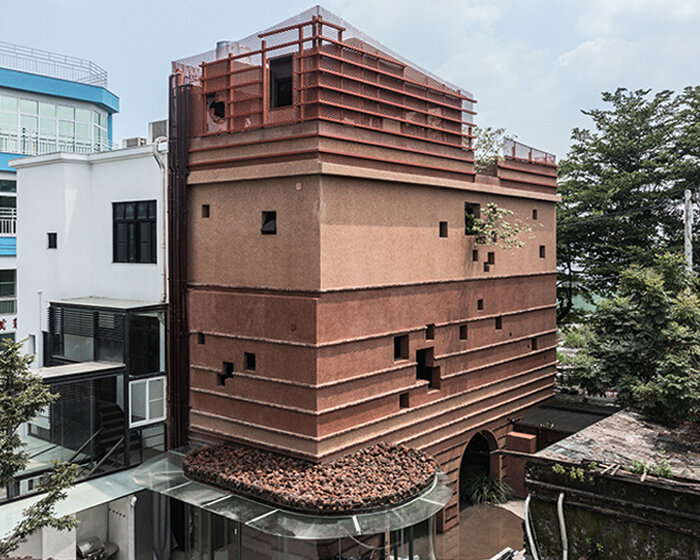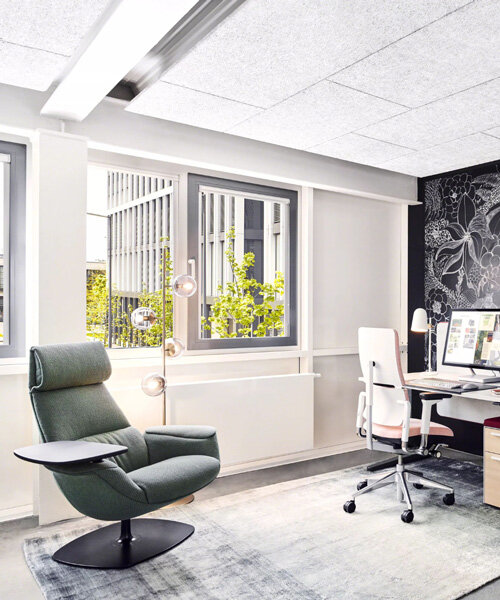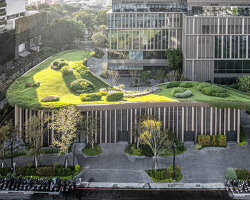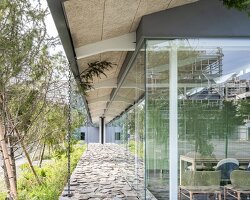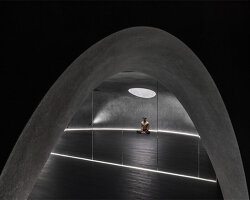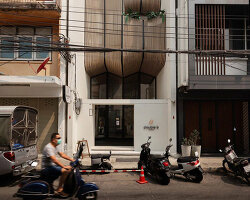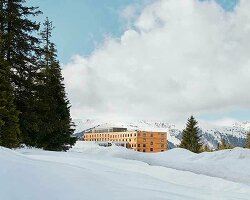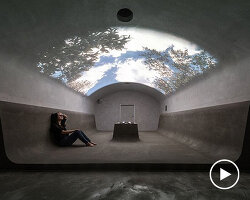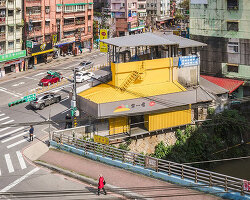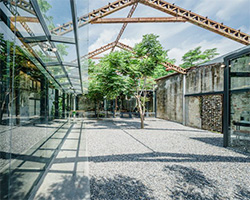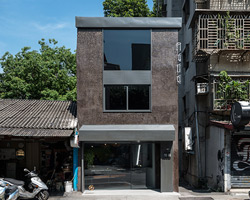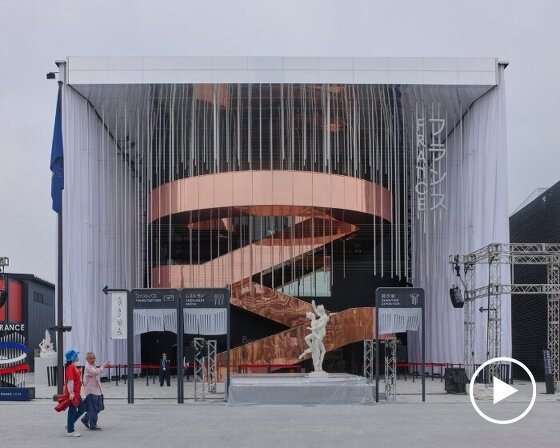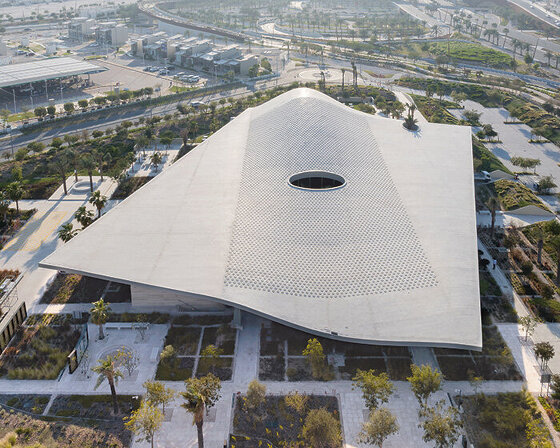from old grain depository to modern-day ‘de-hostel’
de xing rice milling plant was an old grain depository in the countryside of pingtung, in southern taiwan. years later, the building is back in use thanks to studio APL who first converted the plant into a residential space back in 2018, then into a hostel called the ‘de-hostel’. while preserving the old atmosphere of the plant, the project allowed for a new neighborhood relationship to take shape and give an extended family the opportunity and a place to meet again.
‘in 2015, we transformed the old warehouse into yamato cafe. in 2018, we transformed the old grain depository into a residential space with the intention of opening up dialogue and exchange within the local community, thus creating architectural symbiosis and new neighborhood relationships’, shares the studio.
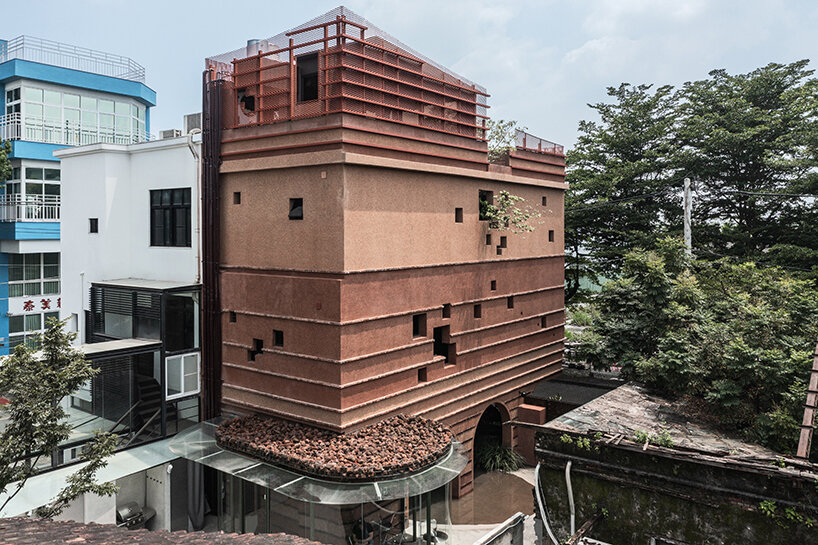
all images by yi-hsien lee and studio APL
51 voids and the memory of rice: remembering the milling plant
the team at studio APL rearranged the walls of the grain depository building to form orderly ‘voids’ that follow the old wooden beam structure embedded into the brick wall. in addition to retaining the existing wooden beam, the new design is composed of 51 voids with different functions: windows, wind access, light penetration, plant growth, memory voids, and small nests where birds can rest. even more, the way in which the building voids are cut out indirectly represent the historic division of the land across generations.
preserving the voids of the old wooden structure, the team created a new wall with a traditional stone wash finish covered in small red stones. touching the rough-textured surface of that wall will feel like running one’s fingers in a pile of rice grains – a simple nod to the old grain depository.
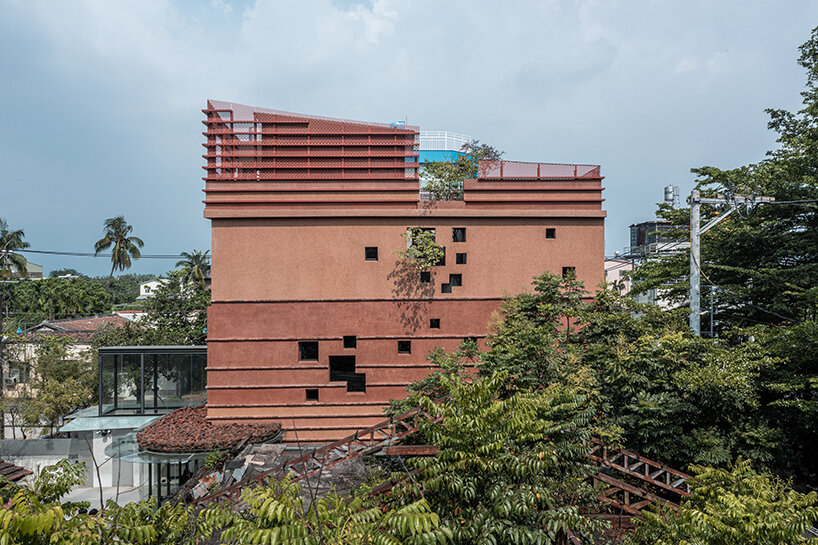
orderly ‘voids’ follow the old wooden beam structure embedded into the brick wal
additionally, studio APL introduced two new features that inject natural elements into the design: a pocket garden that welcomes visitors at the entrance of the hostel – with the street space expanded to create a seamless visual extension of the landscape – and a pool in the atrium that acts as a point of circulation to guide people inside and a plaza to host activities.
the glass roof of the atrium is piled with brick-red volcanic stones to create a ‘perforated’ shading effect when the sun shines through the gaps created by the rocks. with light and shadow sprinkled on the stone floor, a metaphor is created to commemorate the gradual ‘disappearance’ of the rice milling plant from generation to generation. in addition, by adopting low-tech green building construction methods, the hostel becomes a natural wind tower from bottom to top.
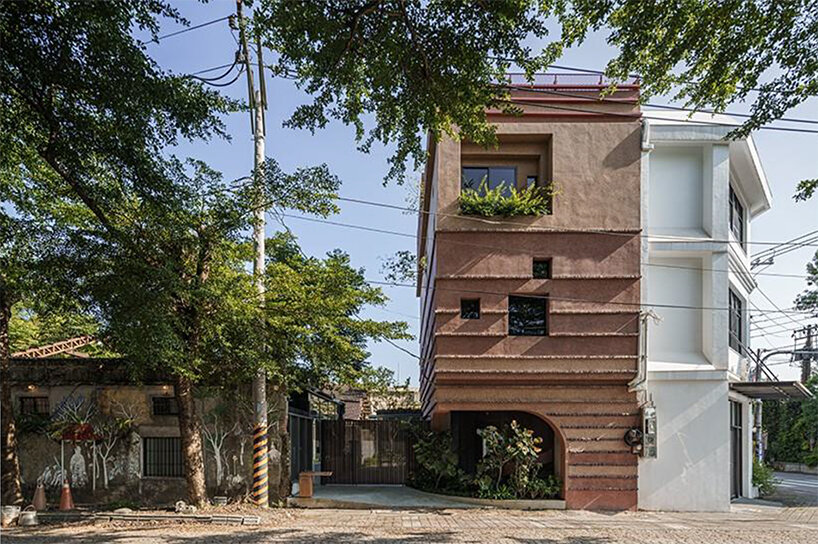
the pocket garden becomes the entrance of the ‘de-hostel’
the second floor hosts a six-bed backpackers room, a bathroom area and social room – and each individual bed has its own storage and hanging space. on the third floor, a garden in the middle serves as a focal point for the two family rooms while a spiral staircase leads the visitors to the top garden where the owner’s room is found.
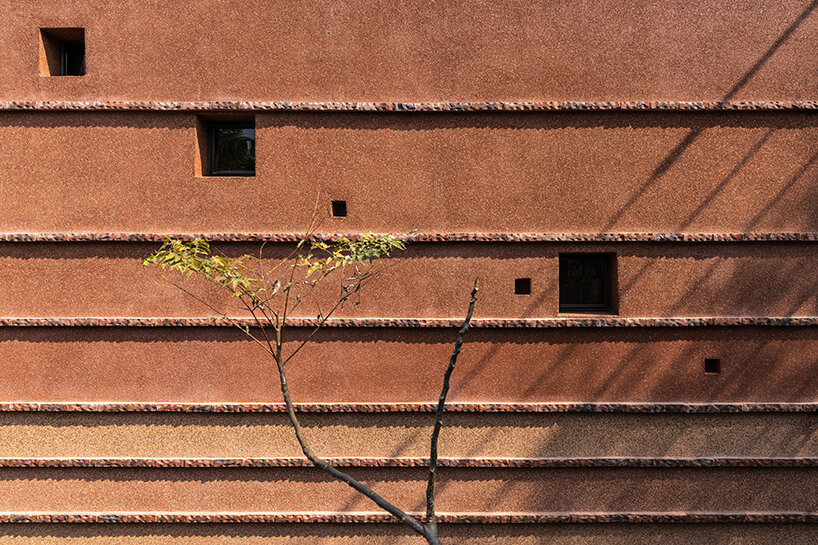
while preserving the voids of the old wooden structure, a new wall is created with traditional stone wash finish
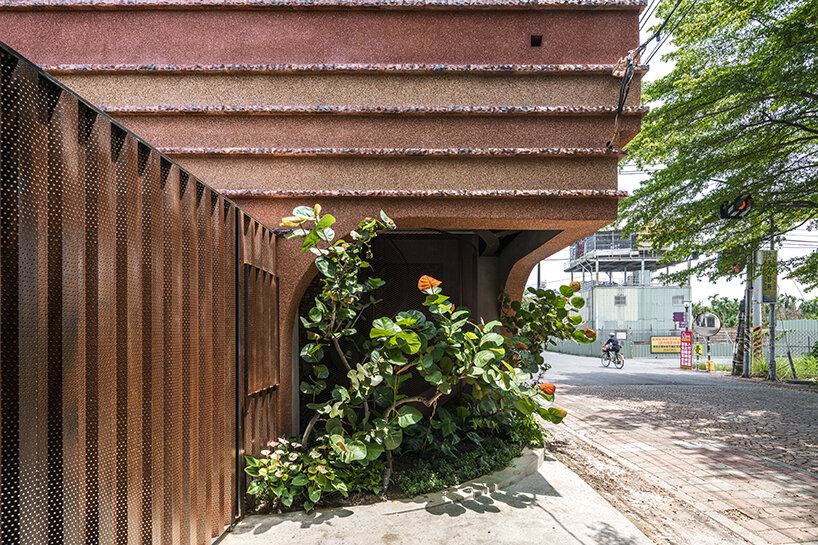
natural elements complement the rough-textured building shell
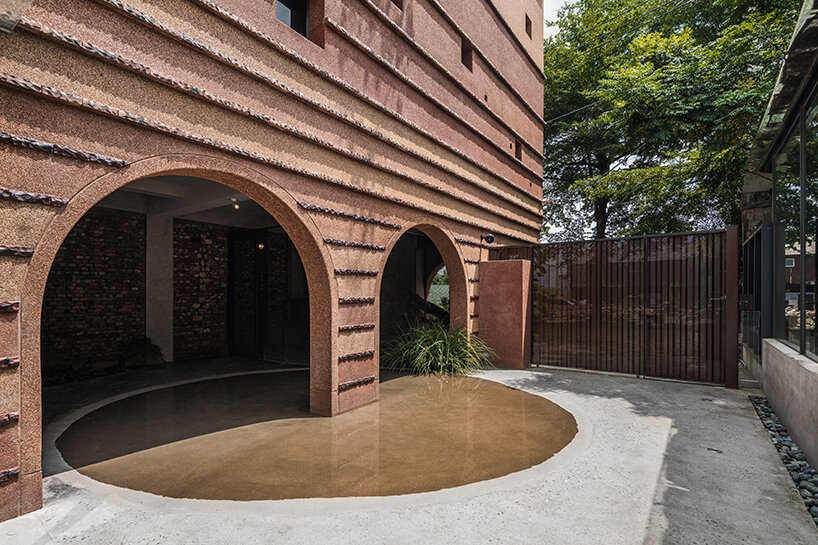
reflective pools act as guides for movement
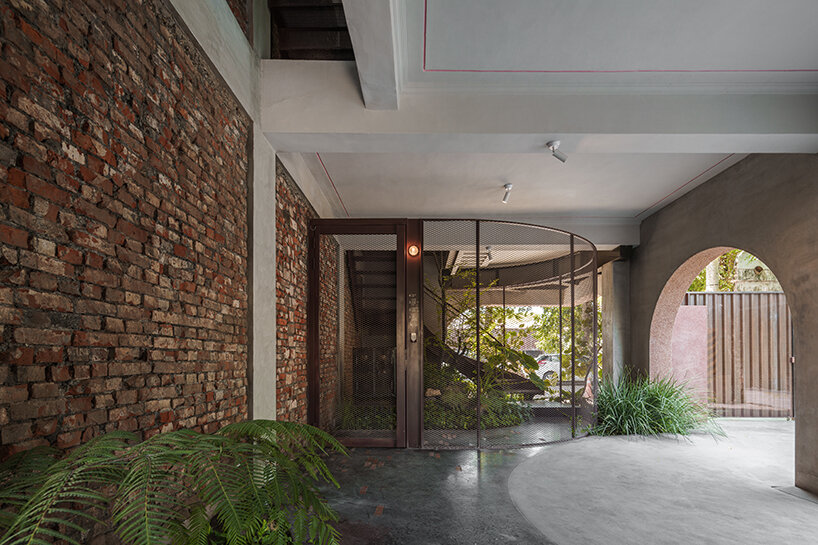
a metal mesh curves around the staircase – a boundary between the public space and residential quarters above
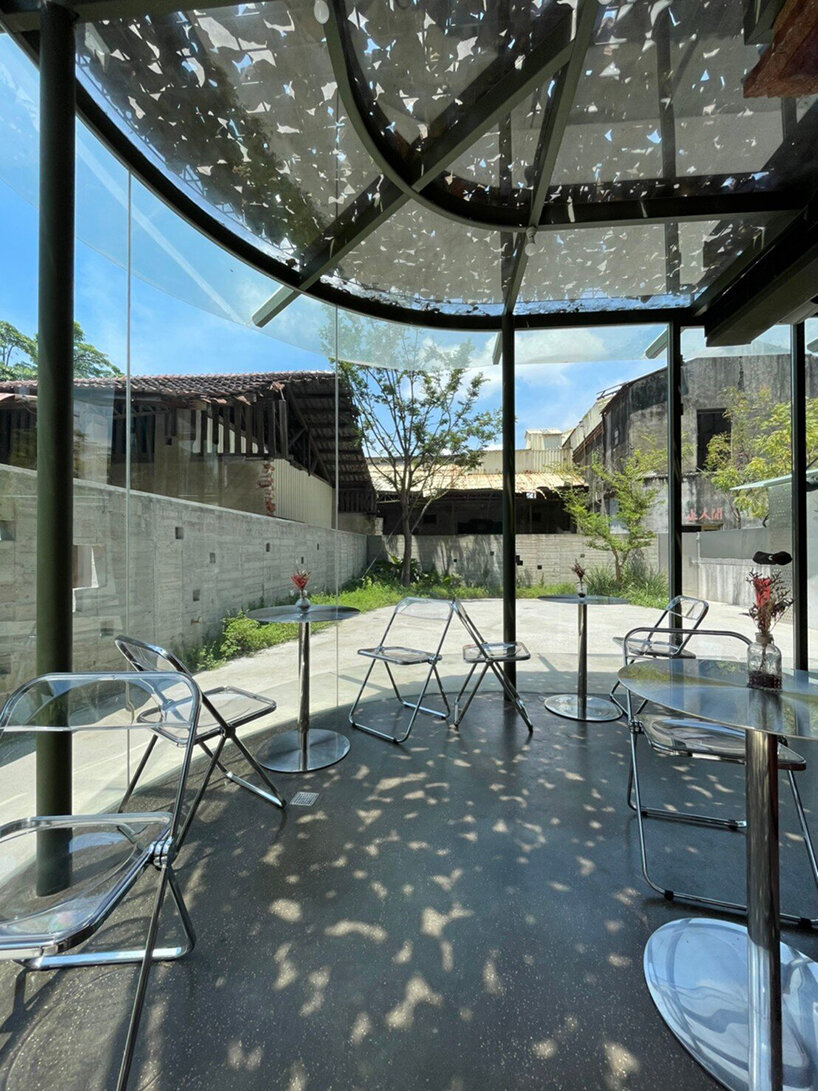
the glass roof is piled with volcanic stones to create perforated shading effects
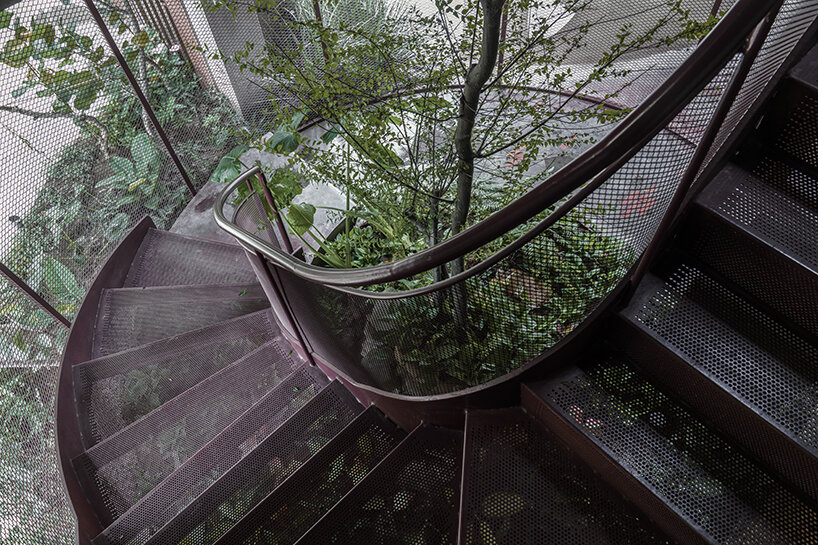
the spiral staircase leads to the top garden where the house owner’s room is found
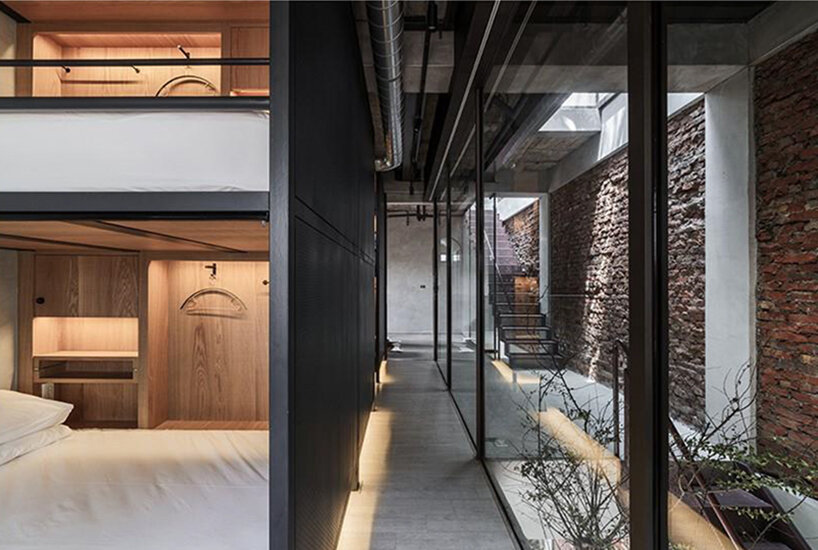
the second floor hosts a six-bed backpackers room, a bathroom area and social room
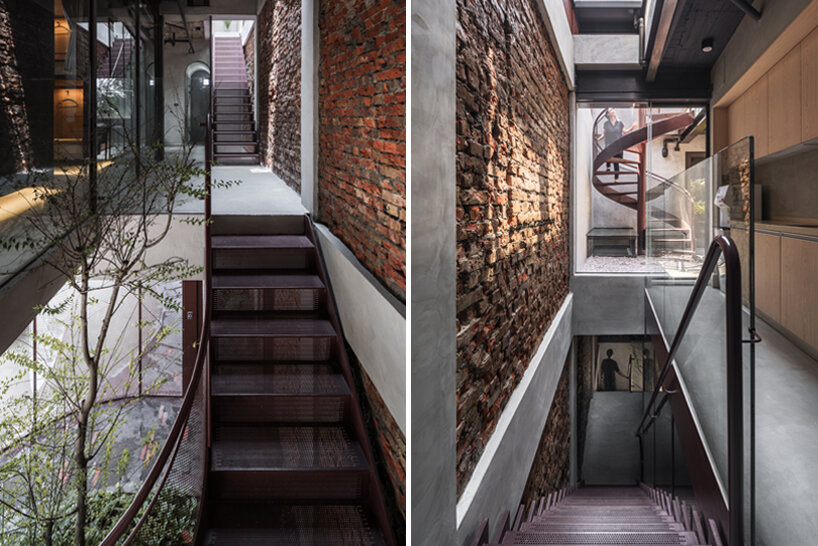
view of the old brick wall
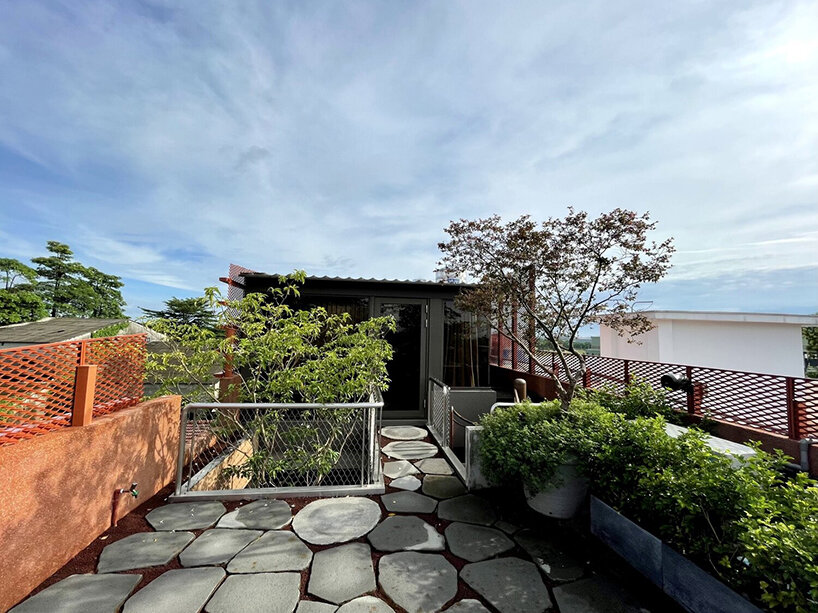
the roof garden
project info:
project name: de-hostel
location: pingtung, taiwan
design firm: studio APL
design team: pei-an li, pei-chen li, hui-chi chen, yu-feng sung
photography: yi-hsien lee and studio APL
design time: 11.2018~06.2019
construction time: 06.2019~05.2021
materials: stone wash finish, grinding stones, fire bricks, volcanic stones, perforated metal mesh, glass, expanded metal mesh, small mosaic tiles
plants: taiwan zelkova, crepe jasmine, red cypress
designboom has received this project from our DIY submissions feature, where we welcome our readers to submit their own work for publication. see more project submissions from our readers here.
edited by: lea zeitoun | designboom
